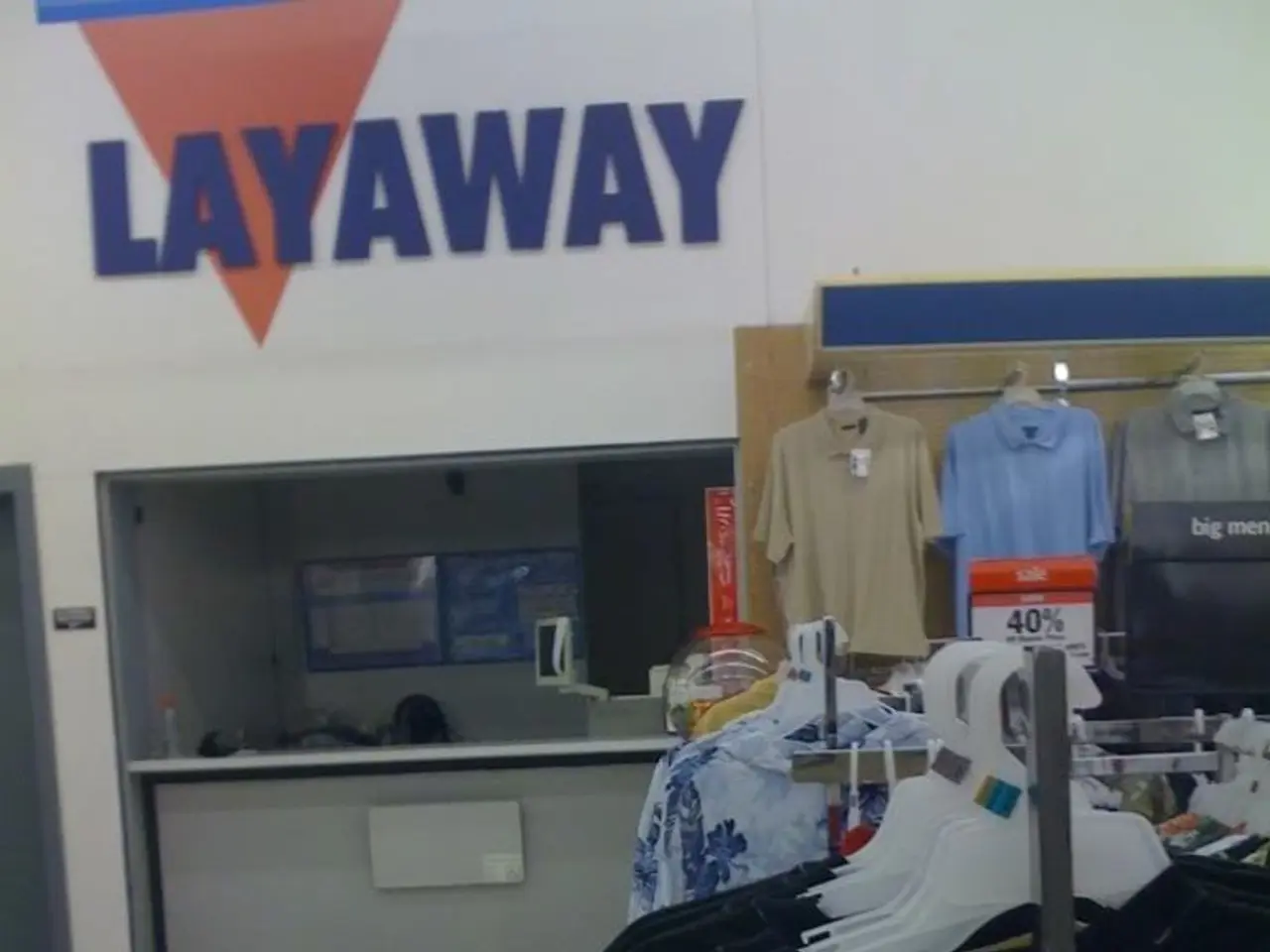July retail sales climb by 0.5% as consumers expedite purchases due to looming tariffs
In July 2025, consumer prices rose 2.7% from the previous year, marking a moderate inflation rate. However, the impact of tariffs on various sectors, particularly the auto and furniture industries, has raised concerns.
Despite the increased costs, U.S. retail sales have generally remained robust. The auto sector experienced a surge in purchases as consumers rushed to buy before tariffs took effect, followed by some volatility and a subsequent normalization. In July, auto sales rose 1.6%, reflecting a rebound after earlier fluctuations related to tariff timing.
The furniture sector, too, has shown resilience. Expanded steel and aluminum tariffs have raised import costs, but furniture and home furnishings stores posted a solid sales increase of 1.4% in July.
Retail giants like Walmart have reported gradually increasing costs as inventory replenishment reflects tariff-induced price hikes. However, overall inflation remains moderate at about 2.7%. Retail sales rose 0.5% in July, fueled by consumers pulling purchases forward ahead of tariffs and responding to sales promotions. Excluding auto sales, retail sales still rose 0.3%, including strong gains in clothing and online sales.
Business at home furnishings and furniture stores had strong sales gains, while sales at electronics stores decreased. Sales at restaurants also decreased.
Some companies, including Procter & Gamble, e.lf. Cosmetics, Black & Decker, and Ralph Lauren, plan to or have already raised prices. Warby Parker, a leading player in the eyewear industry, plans to increase prices on select lens types. Warby Parker's business currently consists of 23% progressives, its highest priced offering and offer the highest profit margins.
U.S. wholesale inflation soared 0.9% last month, with the producer price index, which measures inflation before it hits consumers, also rising 0.9%. Core prices, which exclude food and energy, rose 0.3% in July.
June retail sales were revised upward to 0.9% from the original 0.6% increase. A category of sales that excludes volatile sectors such as gas, cars, and restaurants rose 0.5% in July.
Walmart increased prices on bananas imported from Costa Rica in May, indicating that the ripple effects of tariffs are not limited to the sectors that are directly affected.
In summary, while tariffs have increased costs, especially for autos and furniture, U.S. retail sales have generally remained robust in 2025, with consumers absorbing some price increases and continuing to spend actively, including in auto dealerships and furniture stores.
- The Bellevue area, specifically home furnishings and furniture stores, experienced significant sales gains, despite the implemented tariffs causing higher import costs.
- Despite the reported price hikes due to tariffs, Amazon and other major retail businesses, like Walmart and Procter & Gamble, have seen a rebound in sales, with consumers continuing to buy goods and services.
- The Seattle economy, significantly reliant on the retail industry, has shown resilience in the face of tariff-induced inflation, with various businesses adjusting their pricing strategies to maintain profitability.
- The government's tariffs on foreign goods have not only affected the auto and furniture industries directly but have also affected related businesses such as Warby Parker in the eyewear industry, resulting in price increases for specific lens types.
- The finance and business sectors have been closely monitoring the impact of tariffs on the U.S. economy, with wholesale inflation rates increasing and the ripple effects reaching industries such as agriculture, as seen with the price increase on imported bananas at Walmart.




